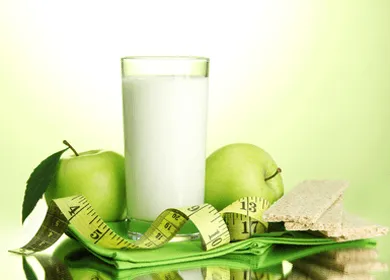
- Share on Facebook5
- Share on Pinterest
- Share on Twitter
Probiotics have become one of the latest health buzz words in recent years. However, evidence is mounting about the key role probiotics and gut bacteria have on health.
 Gut Health Linked to Immune Function
Gut Health Linked to Immune Function
The digestive system contains levels of both healthy and unhealthy bacteria. Healthy bacteria are necessary to help the immune system and digestive tract to function properly. Probiotics promote and support healthy gut bacteria and encourage elimination of unhealthy bacteria.
Unhealthy gut bacteria has been linked to many autoimmune system disorders, such as systemic lupus, diabetes, asthma and others. Additionally, health conditions such as Crohn’s disease, Celiac disease and irritable bowel syndrome are also linked to unhealthy gut bacteria levels. Common symptoms of gut problems include diarrhea, constipation, bloating, gas and abdominal cramping.
Recommended Probiotic Foods
It is important to read food labels if you are trying to eat probiotic foods. Fermented foods are one of the best sources for probiotic bacteria. Eating foods such as Kim Chi, sauerkraut, tempeh and miso will provide you with rich sources for healthy gut bacteria.
Yogurt and kefir are also excellent sources of probiotic bacteria. Look for food labels that state there are active cultures contained in yogurt and kefir to ensure you are getting the highest benefit possible from these foods. Avoid foods that contain high fructose corn syrup and artificial thickening agents.
Kombucha tea is another excellent source of probiotics. It has been used in Asian cultures for hundreds of years and can help with weight loss and energy levels.
Super green ocean foods are also high in probiotic bacteria. Blue-green algae, spirulina and chlorella are food supplements that can be consumed and can increase bifidobacteria and lactobacillus in the digestive tract. These are two of the most effective and desired forms of probiotic bacteria.
What are your favorite probiotic foods? Do you eat them every day?
– The Alternative Daily
- Share on Facebook5
- Share on Pinterest
- Share on Twitter

